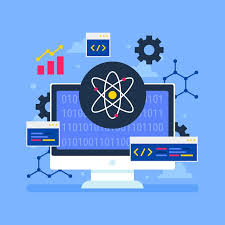The Evolution of Artificial Intelligence: From Concept to Reality
Explore the journey of artificial intelligence (AI) from its early theoretical foundations to its current practical applications. Discover how AI is transforming industries and shaping the future.

Artificial Intelligence (AI) has come a long way since its conceptual beginnings in the mid-20th century. What started as a theoretical pursuit in computer science has evolved into a powerful technology that is reshaping various industries and aspects of daily life. In this blog, we trace the evolution of AI, examining key milestones in its development, the breakthroughs that have led to its current capabilities, and the impact it has on different sectors. From early AI research and the rise of machine learning to the advent of deep learning and AI-driven innovations, we explore how AI has become an integral part of modern technology and what the future holds for this transformative field.
The Beginnings of AI
-
Early Theoretical Foundations The concept of artificial intelligence can be traced back to early 20th-century theories about machine intelligence and automated reasoning. Pioneering work by mathematicians and logicians, such as Alan Turing, laid the groundwork for the study of intelligent machines.
-
The Birth of AI Research The term "artificial intelligence" was coined in 1956 during the Dartmouth Conference, where researchers gathered to explore the potential of machines to simulate human intelligence. Early AI research focused on symbolic reasoning and problem-solving.
Key Milestones in AI Development
-
The Rise of Machine Learning In the 1980s and 1990s, AI research shifted towards machine learning, where algorithms learn from data and improve over time. This transition marked a significant advancement in AI capabilities, enabling machines to recognize patterns and make predictions.
-
The Advent of Deep Learning The early 2000s saw the emergence of deep learning, a subset of machine learning involving neural networks with many layers. Deep learning has driven major breakthroughs in AI, including image and speech recognition, natural language processing, and autonomous systems.
-
AI in Everyday Applications AI has become increasingly integrated into everyday applications, from virtual assistants like Siri and Alexa to recommendation systems on streaming platforms. These technologies use AI algorithms to enhance user experiences and provide personalized services.
The Impact of AI on Industries
-
Healthcare AI is revolutionizing healthcare with applications in diagnostics, personalized medicine, and drug discovery. AI-powered tools can analyze medical images, predict disease outcomes, and optimize treatment plans.
-
Finance In the financial sector, AI algorithms are used for fraud detection, algorithmic trading, and risk assessment. AI helps financial institutions make data-driven decisions and improve operational efficiency.
-
Retail and E-Commerce AI enhances the retail experience through personalized recommendations, chatbots, and inventory management. Retailers use AI to understand customer preferences, optimize pricing, and streamline operations.
-
Transportation Autonomous vehicles and smart transportation systems are powered by AI, improving safety, efficiency, and convenience in travel. AI algorithms enable self-driving cars to navigate and make real-time decisions.
-
Manufacturing AI-driven automation and predictive maintenance are transforming manufacturing processes. AI enhances productivity, reduces downtime, and enables more flexible and efficient production lines.
The Future of AI
-
Advancements in AI Research The future of AI holds exciting possibilities, including advancements in areas such as general AI, which aims to achieve human-like cognitive abilities, and ethical AI, focusing on responsible and fair use of technology.
-
Ethical Considerations As AI technology continues to advance, ethical considerations such as privacy, bias, and accountability will play a crucial role in shaping its development and deployment. Ensuring that AI benefits society while addressing potential risks is essential.
-
AI in Emerging Technologies AI is expected to drive innovation in emerging technologies such as quantum computing, augmented reality, and 5G networks. The integration of AI with these technologies will unlock new opportunities and capabilities.
Artificial Intelligence has evolved from a theoretical concept to a transformative technology with far-reaching implications. Its journey from early research to present-day applications highlights the rapid advancements and potential of AI. As we look to the future, AI will continue to shape industries, enhance everyday life, and drive innovation across various domains. Embracing and understanding AI is crucial for navigating its impact and leveraging its benefits in a rapidly changing world.





